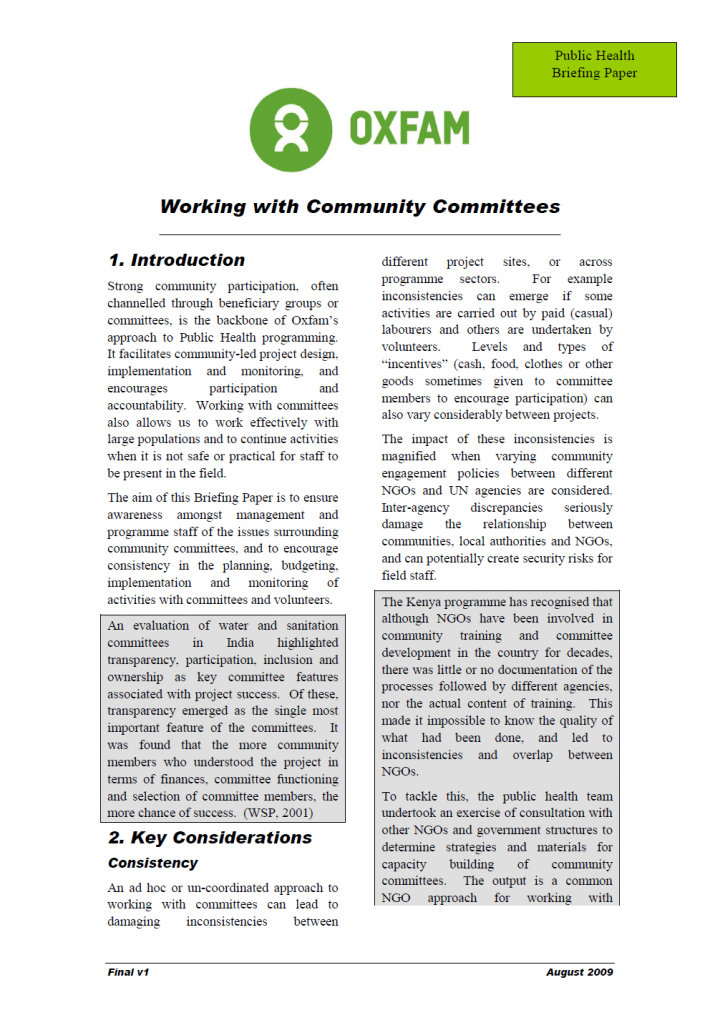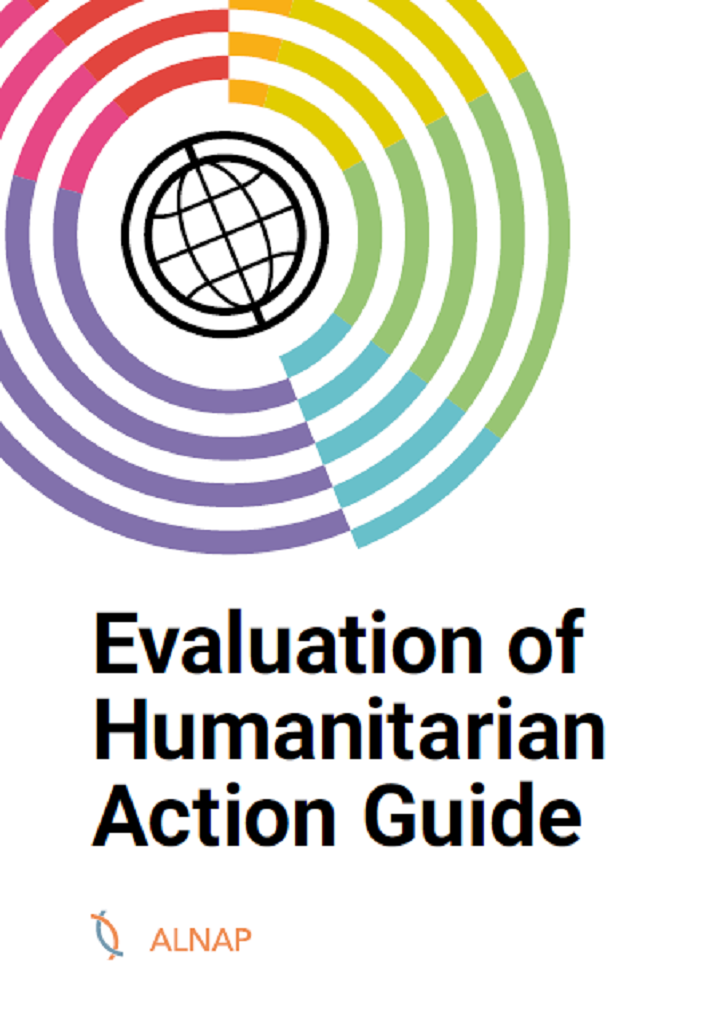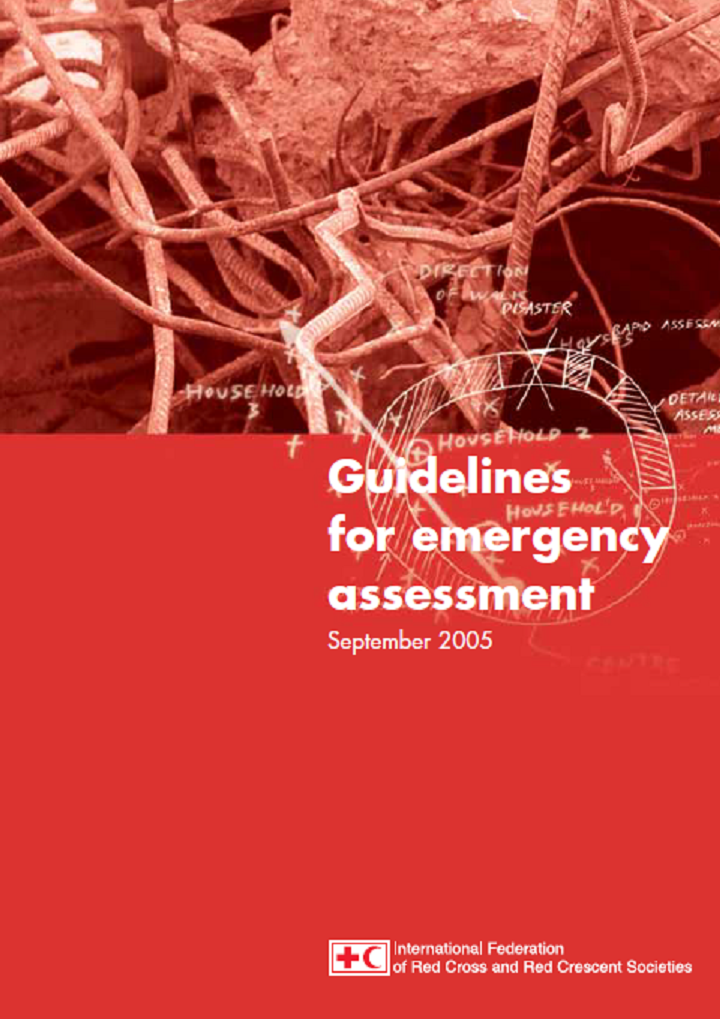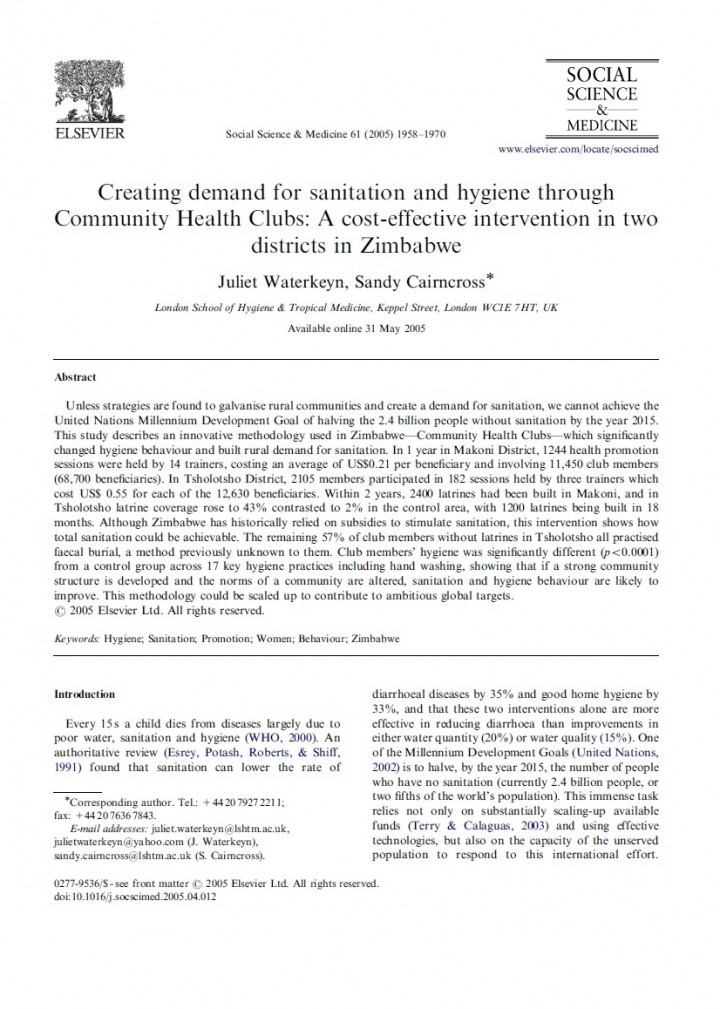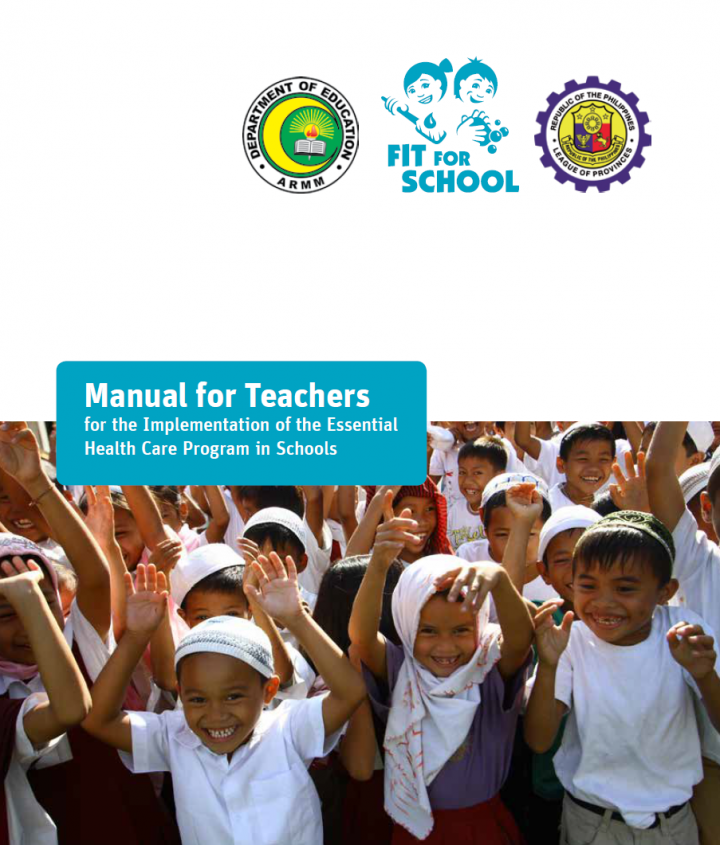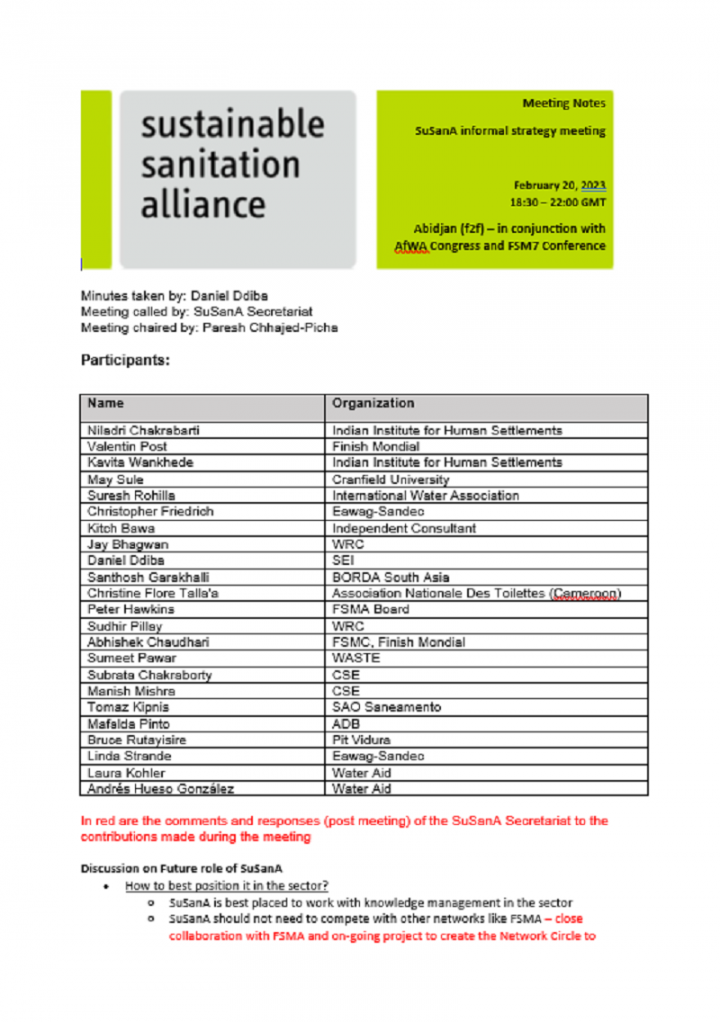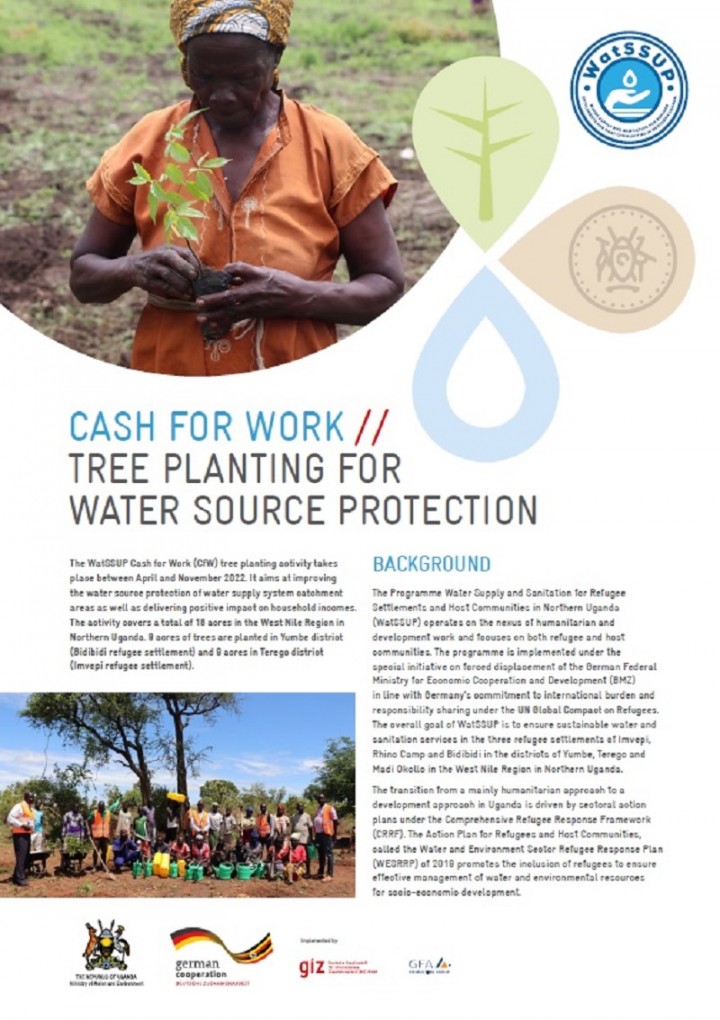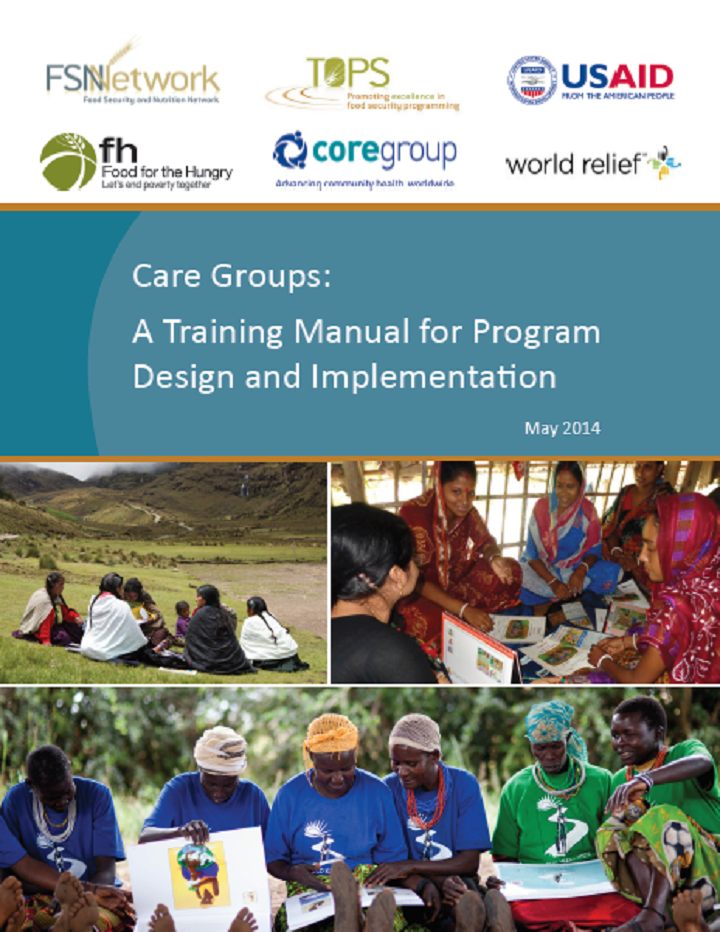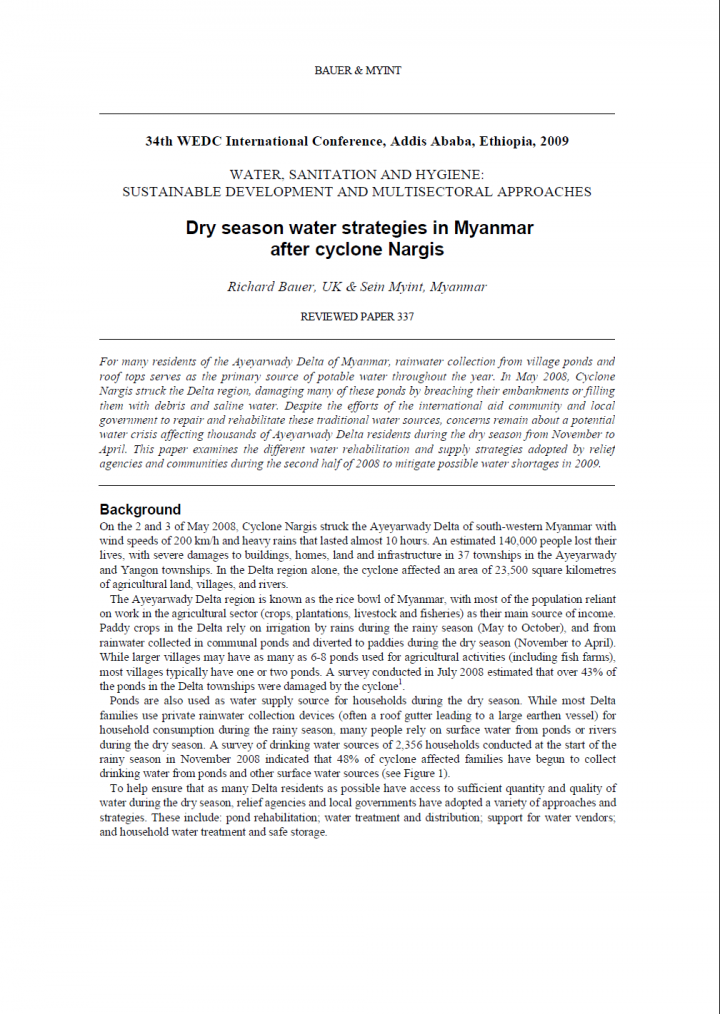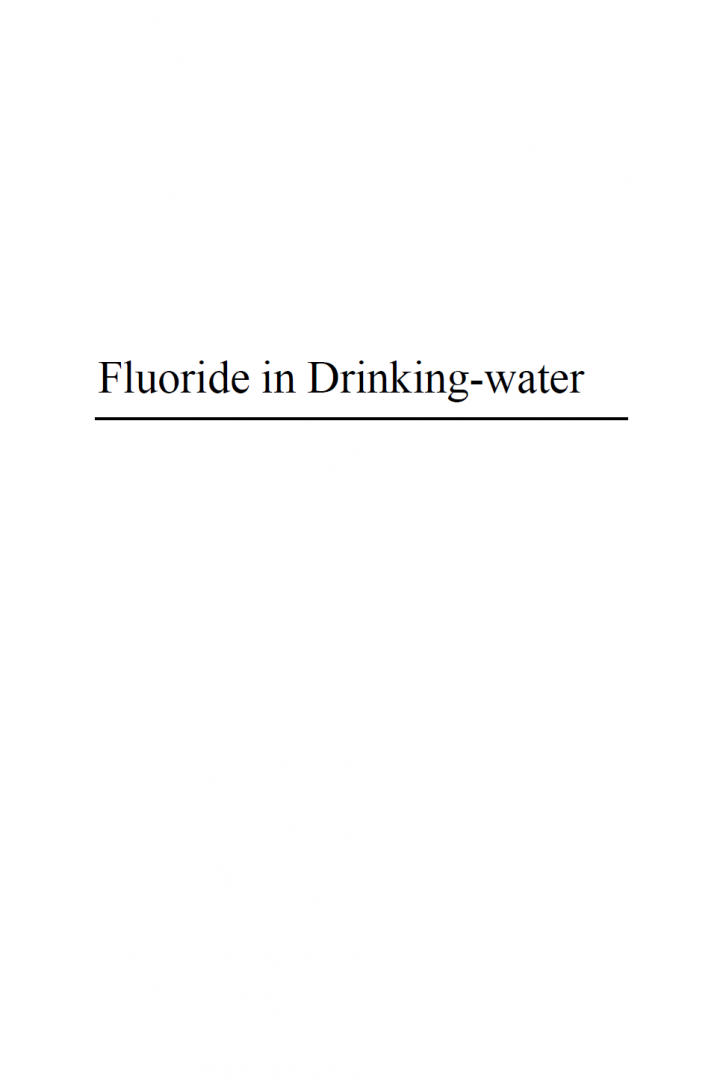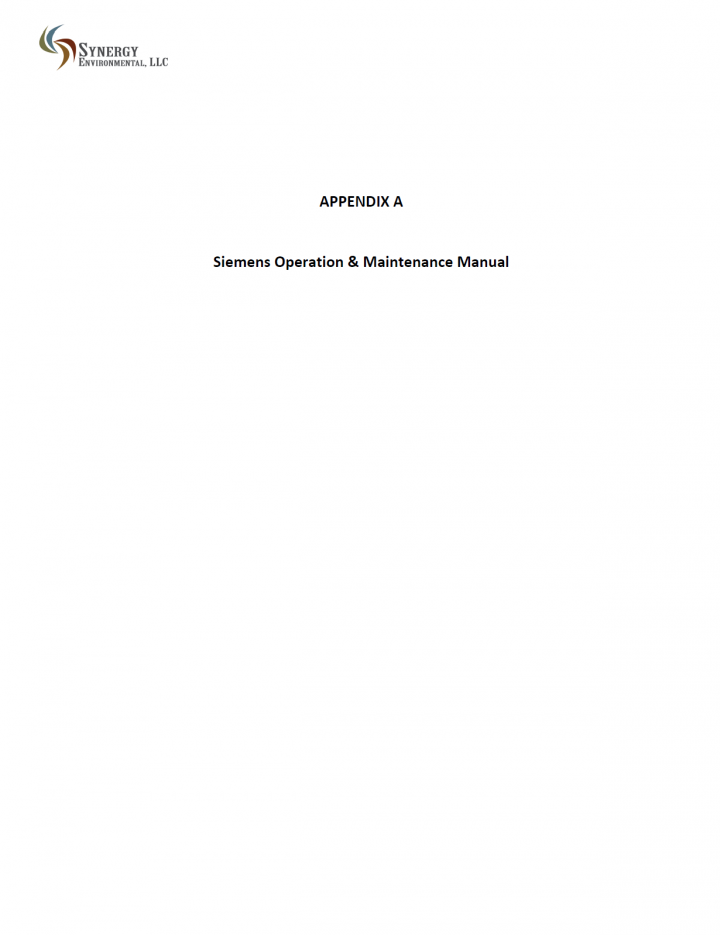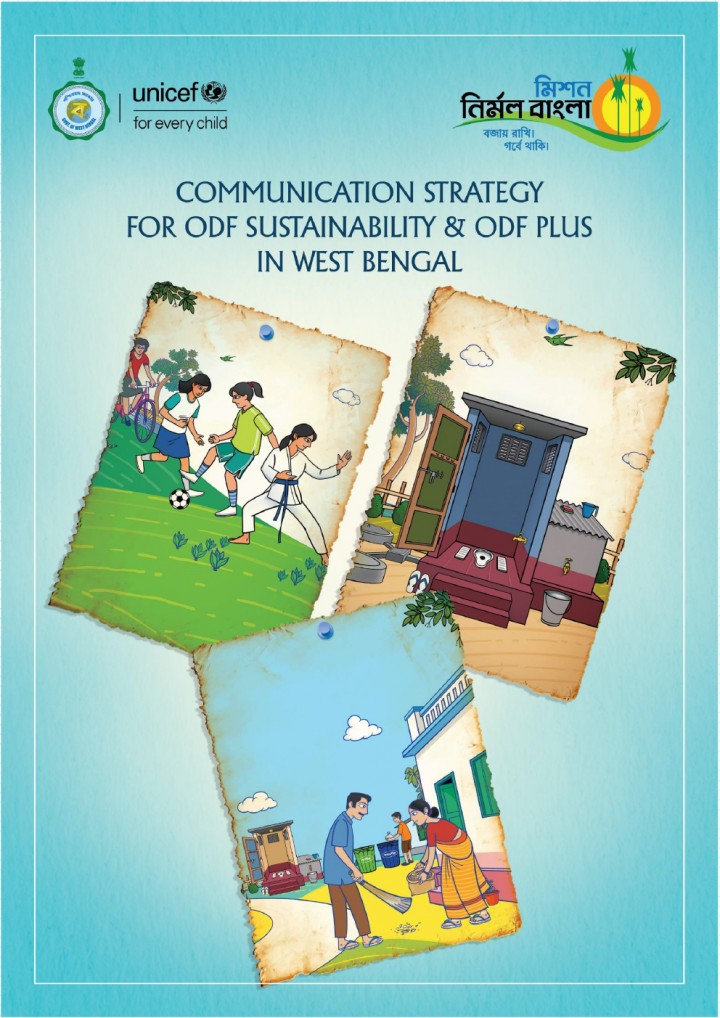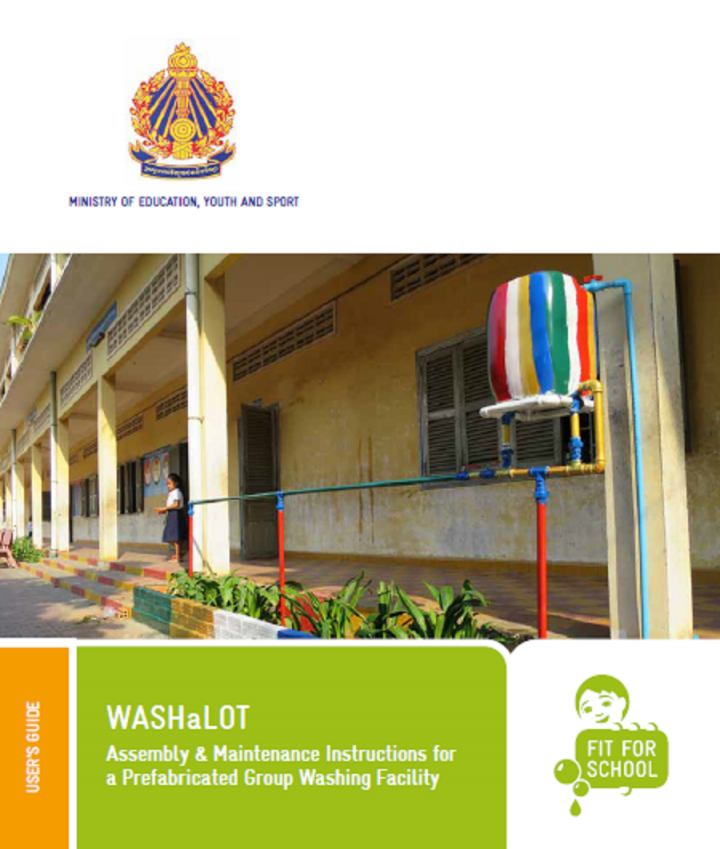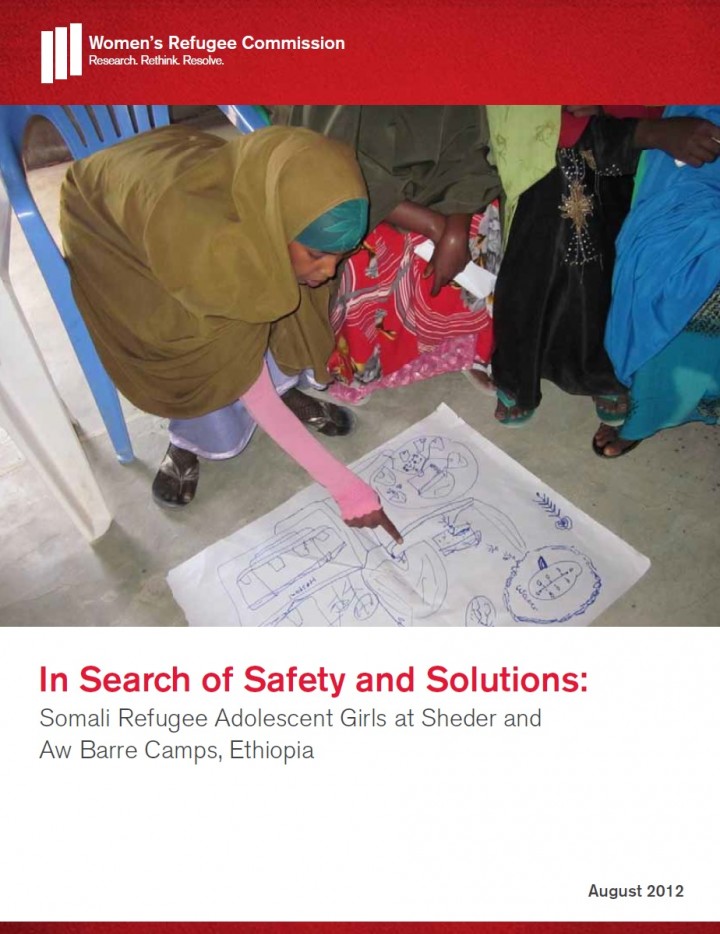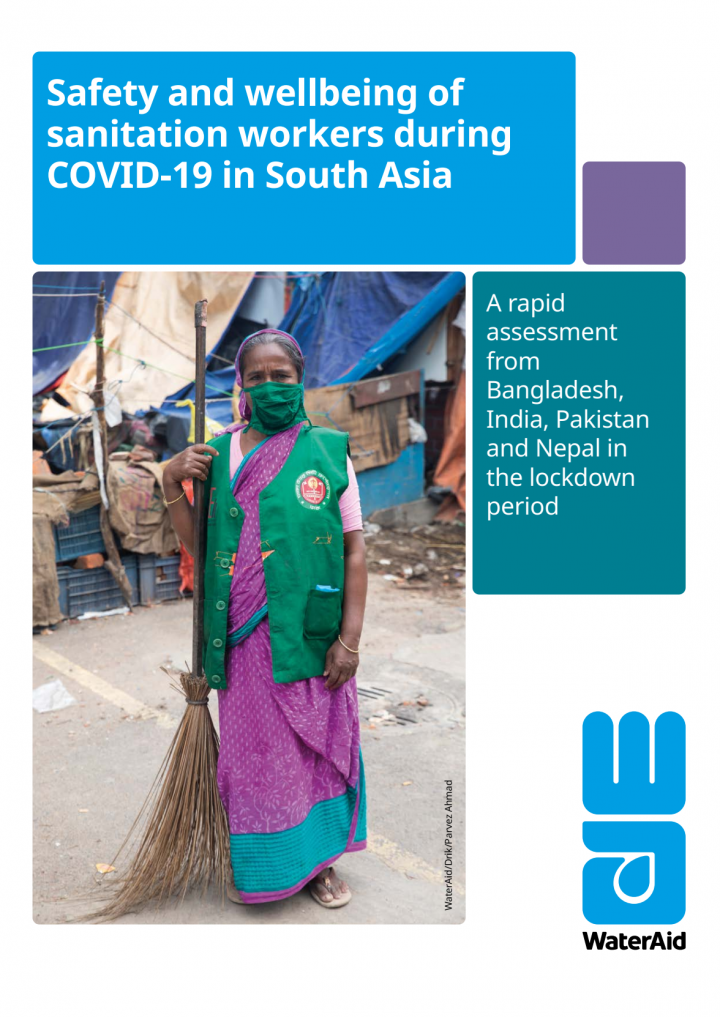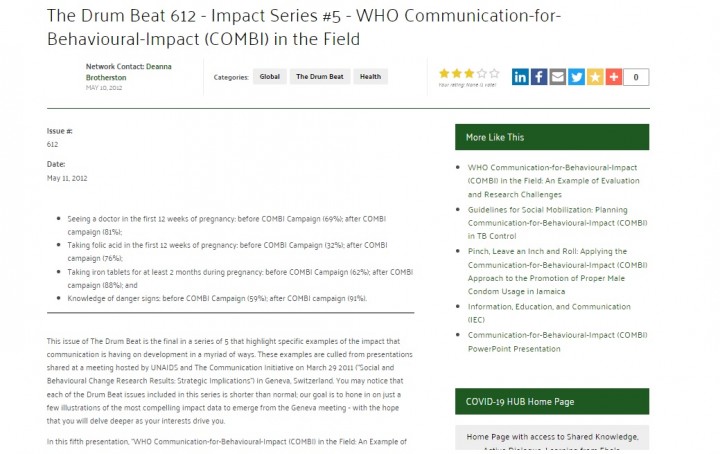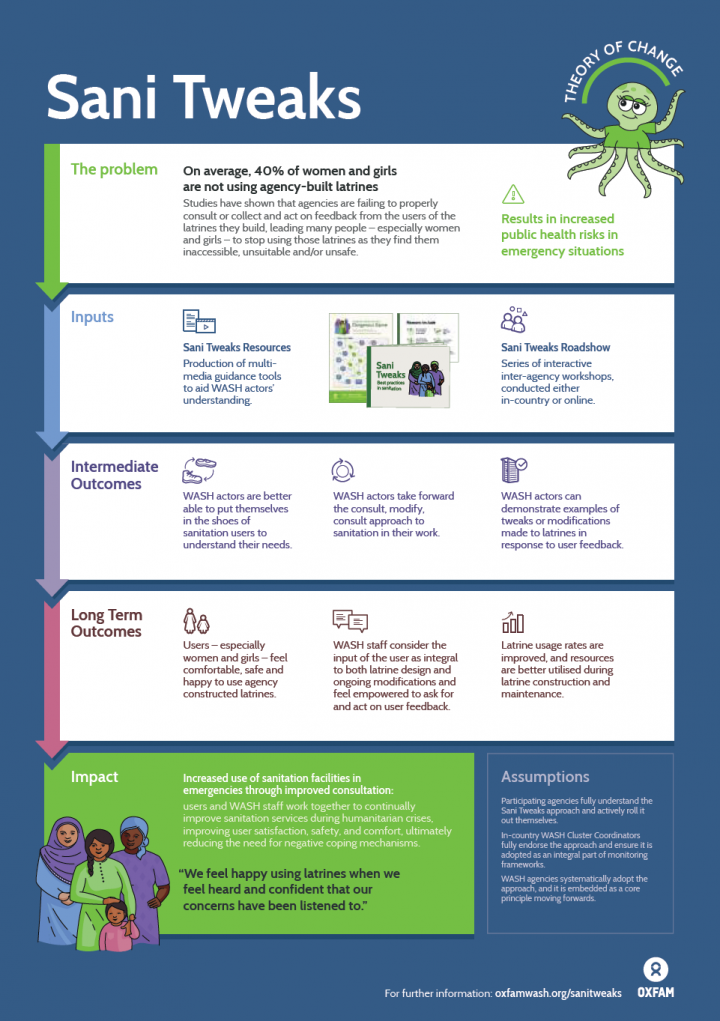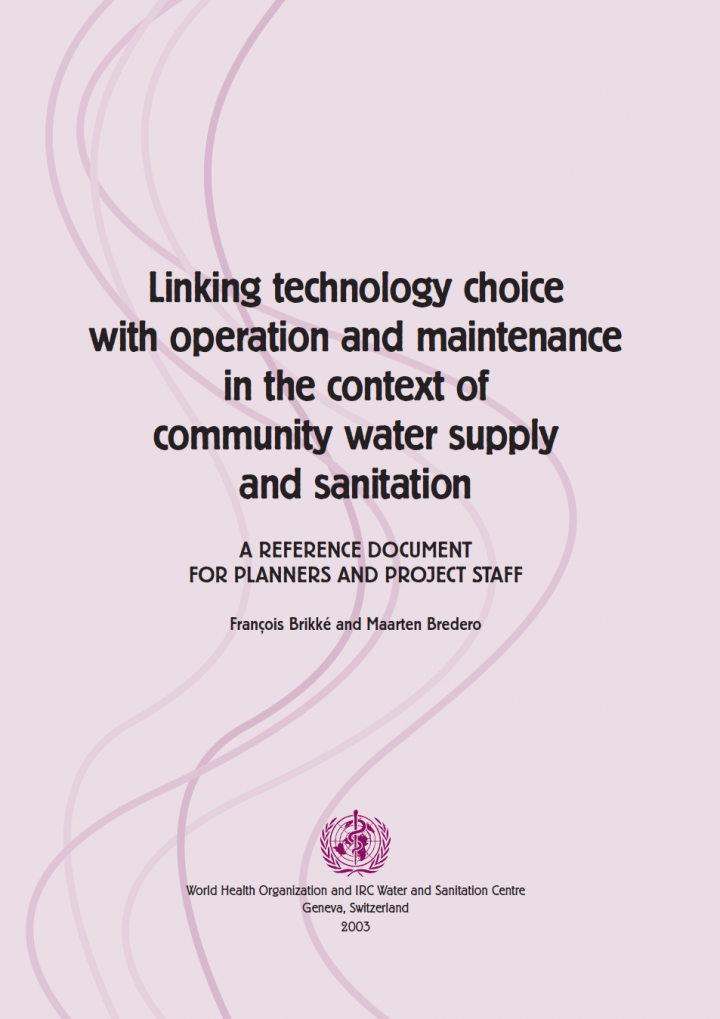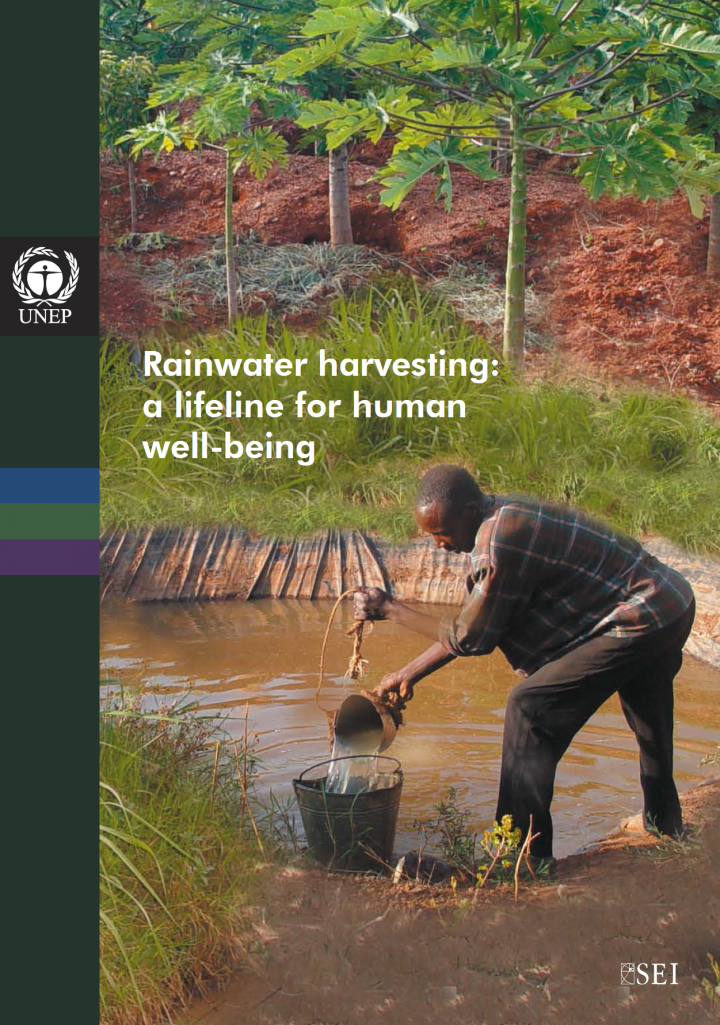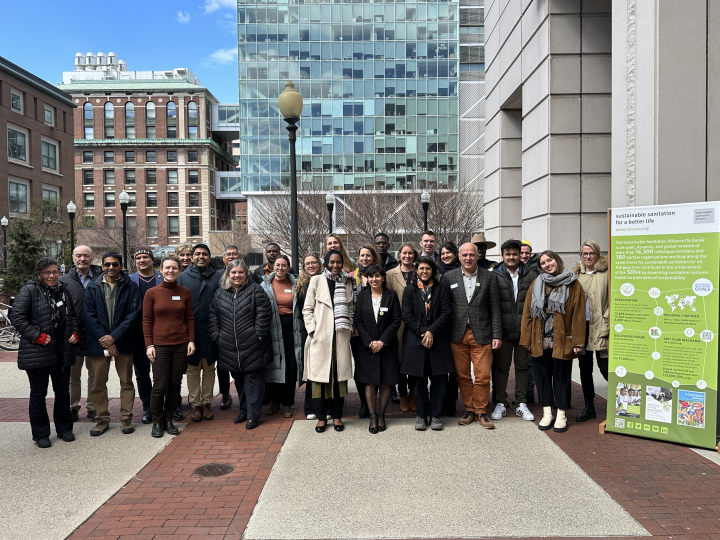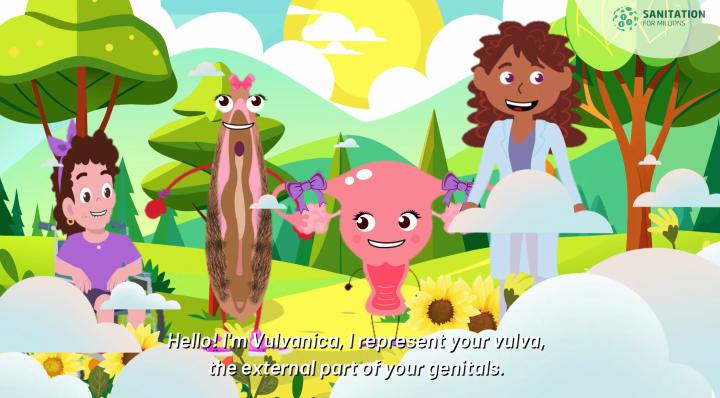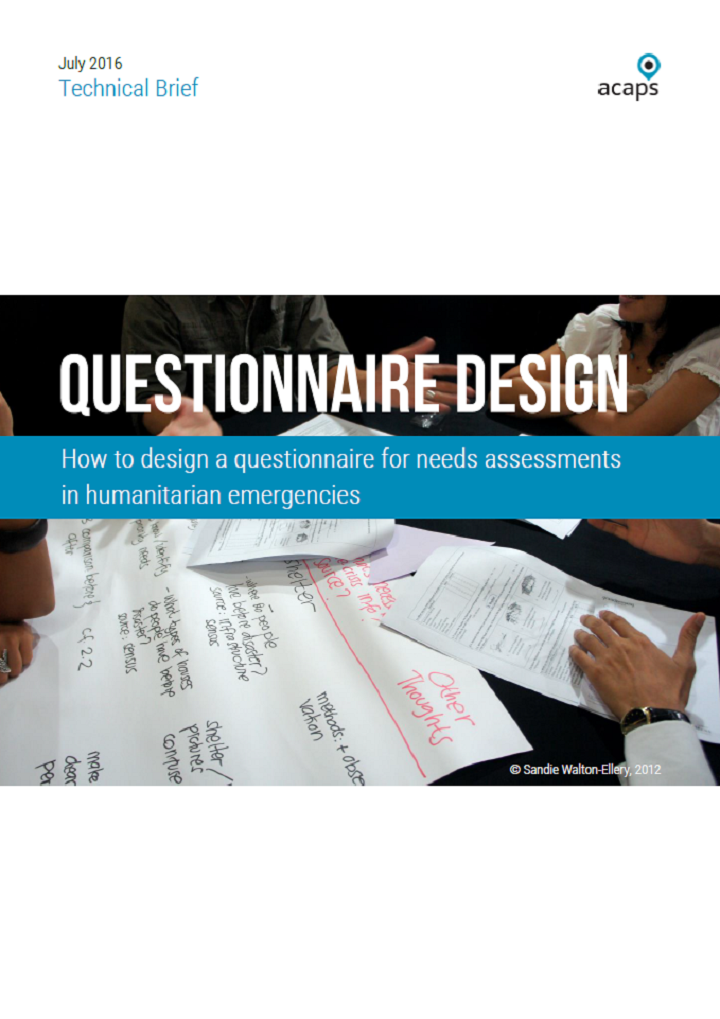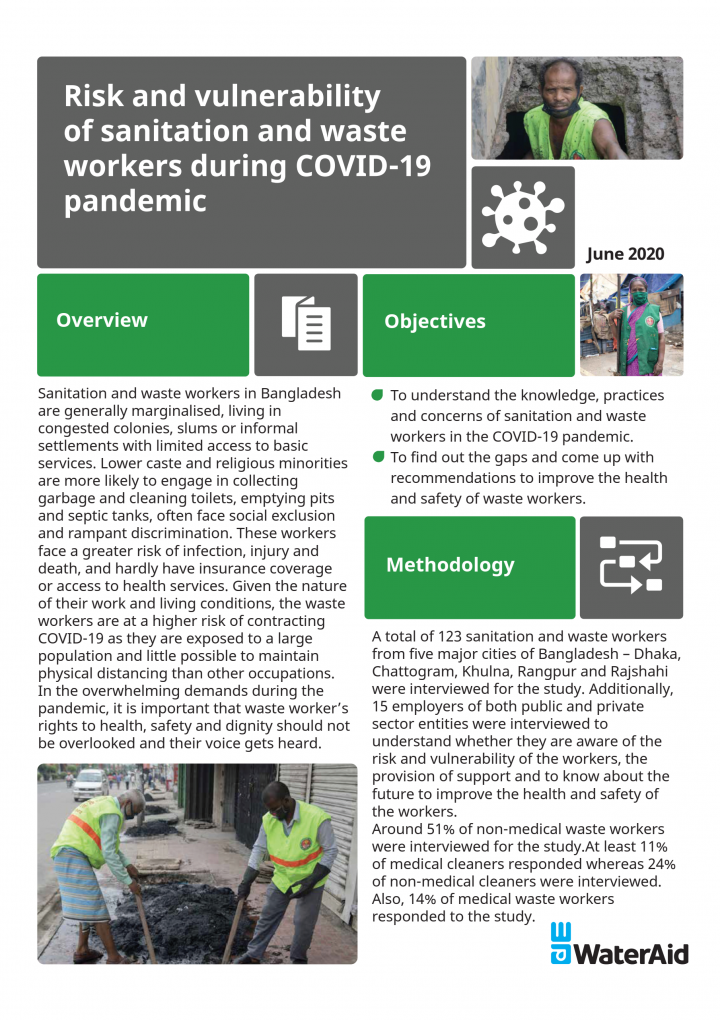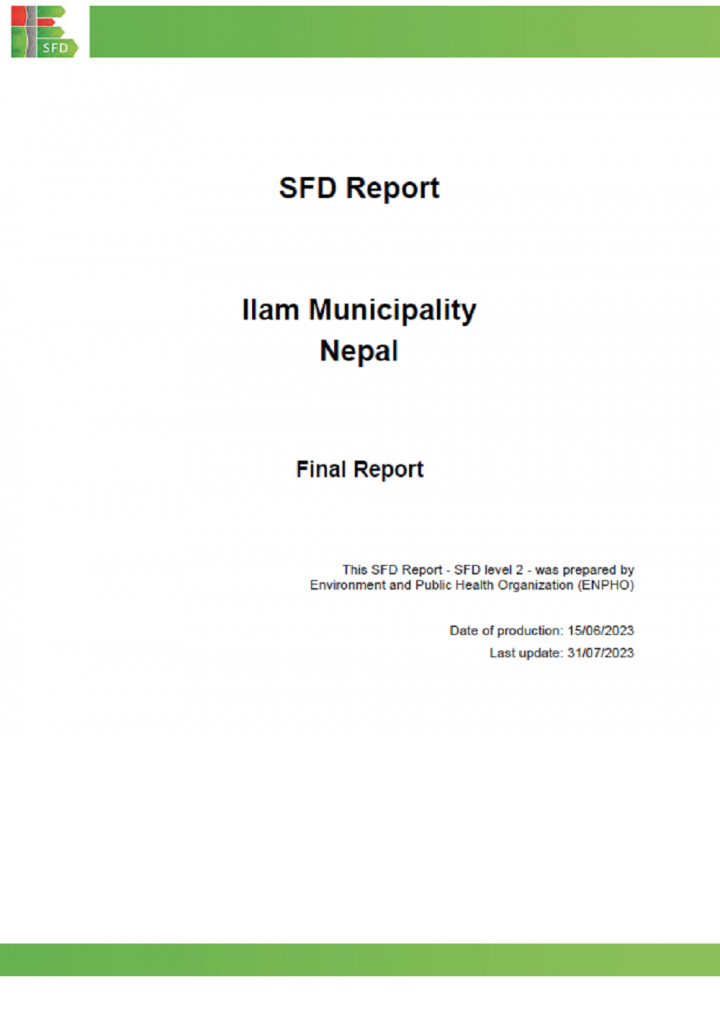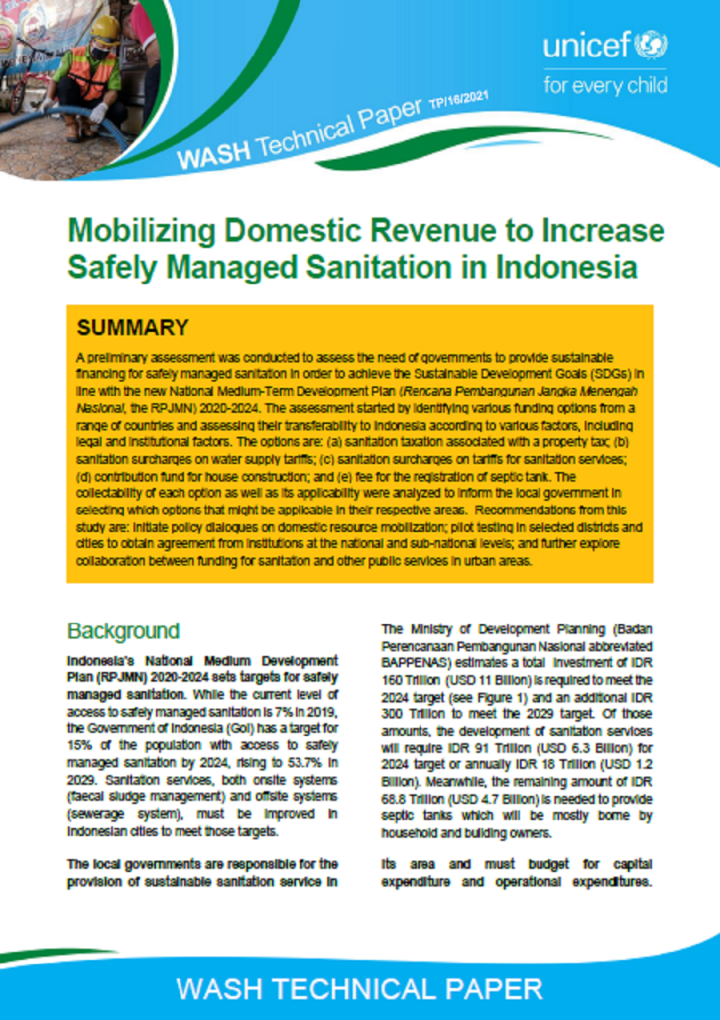Searching for information on Sanitation Workers?
The Sanitation Workers Knowledge + Learning Hub is the best source for all current news, trends, articles and updates on sanitation workers rights around the world.
Strong community participation, often channelled through beneficiary groups or committees, is the backbone of Oxfam‟s approach to Public Health programming. It facilitates community-led project design, implementation and monitoring, and encourages participation and accountability. Working with committees also allows us to work effectively with large populations and to continue activities when …
The Evaluation of Humanitarian Action Guide supports evaluation specialists and non-specialists in every stage of an evaluation, from initial decision to final dissemination.
A pilot version of this Guide was first released in June 2013, following a three-year drafting process led by ALNAP, co-authors John Cosgrave and Margie Buchanan-Smith, and supported by an inter-agency advisory …
1.1 Why is an assessment methodology necessary?
Assessment is a vital element of the programme-planning process. Assessment provides the information on which decisions will be made. Whilst good information does not guarantee a good programme, poor information almost certainly guarantees a bad one. The use of a standard methodology means that information can be compared with data collected during …
Unless strategies are found to galvanise rural communities and create a demand for sanitation, we cannot achieve the United Nations Millennium Development Goal of halving the 2.4 billion people without sanitation by the year 2015. This study describes an innovative methodology used in Zimbabwe—Community Health Clubs—which significantly changed hygiene behaviour and built rural demand for …
Education and health go hand in hand. Children need to be healthy to be fit for school. Sadly, too many children in the Philippines are afflicted by everyday ailments that impact largely on their physical and mental development and limit them from getting the most from their education. The majority of Filipino children very often suffers from worm infections, severe tooth decay and from …
The WatSSUP Cash for Work (CfW) tree planting activity takes place between April and November 2022. It aims at improving the water source protection of water supply system catchment areas as well as delivering positive impact on household incomes. The activity covers a total of 18 acres in the West Nile Region in Northern Uganda. 9 acres of trees are planted in Yumbe district (Bidibidi refugee …
This manual was developed as a training resource for designing, training, implementing and monitoring Care Group (CG) programs. It seeks to help CG approach implementers to clearly understand the structure of the CG approach, how to establish CGs, how to monitor the work of CGs and assess their impact, and how to maintain the quality of the approach through supportive supervision and quality …
For many residents of the Ayeyarwady Delta of Myanmar, rainwater collection from village ponds and
roof tops serves as the primary source of potable water throughout the year. In May 2008, Cyclone
Nargis struck the Delta region, damaging many of these ponds by breaching their embankments or filling
them with debris and saline water. Despite the ef orts of the international aid community …
This manual covers a general description of the equipment and operating procedures for a HP1220 High Pressure Carbon Adsorption Systems. The Carbon Systems are designed to provide many years of trouble free service. To achieve this, the Carbon System equipment must be properly handled and installed to obtain the desired results. Failure to do so can cause premature equipment malfunctions and/or …
Sustaining the ODF status in all districts of West Bengal is the need of the hour. Starting with the first ODF district- Nadia, which has already gathered considerable experience in ODF Sustainability, the entire State is now progressing from ODF stage to ODF Sustainability stage. The impact of ODF S including sanitation, safe drinking water and improved hygiene practices goes way beyond just …
The Women’s Refugee Commission completed a research mission to the Jijiga Somali refugee camps in Ethiopia in April 2012. The research mission was the first of three such missions, which are part of a threeyear global advocacy research project aimed at enhancing the safety and resilience of adolescent girls ages 10 to 16. The purpose of the three-week visit to Ethiopia was to assess Somali …
The COVID-19 pandemic reached South Asia at the beginning of 2020 and by March most of the countries in the region had imposed lockdowns in an attempt to curb the rampant spread of the disease. Severe restrictions on movement were introduced and businesses were closed. Only the provision of essential services – including sanitation and waste management – were permitted to …
Rainfall and soil water are fundamental parts of all terrestrial and aquatic ecosystems which supplies goods and services for human well-being. Availability and quality of water determines ecosystem productivity, both for agricultural and natural systems. There is increasing demand on water resources for development whilst maintaining healthy ecosystems, which put water resources under pressure. …
The SuSanA North America meeting took place on 19th March 2023 - right before the UN 2023 Water Conference. It was jointly organised by our Global Steering Committee Member Prof. Kartik Chandran (Columbia University) and the SuSanA-Secretariat.
This entry is the collection point of the different resources from the SuSanA Meeting, including presentations and program overview.
We once again …
Embárcate en una aventura mágica y educativa con Lucía, una joven que descubre los misterios de la menarquía en este encantador libro animado. A través de un bosque encantado, Lucía se encuentra con personajes fantásticos como Uteriana, la Doctora Menstrualiana y Vulvánica, quienes la guían en su comprensión del ciclo menstrual.
Este video no solo educa sobre los aspectos biológicos …
There is no shortage of questionnaires used during emergencies that are too long, overly complex or unable to generate useful responses. The art of developing an effective questionnaire is the topic of master degrees and doctorates. The questionnaire is a critical tool in humanitarian response and requires time, resources and a detailed understanding of the context, factors which are all in short …
Sanitation and waste workers in Bangladesh are generally marginalised, living in congested colonies, slums or informal settlements with limited access to basic services. Lower caste and religious minorities are more likely to engage in collecting garbage and cleaning toilets, emptying pits and septic tanks, often face social exclusion and rampant discrimination. These workers face a greater risk …
Ilam Municipality is in Ilam district, Koshi province of Nepal. The municipality was established in 1958; one of the oldest municipalities in Nepal. It has 12 wards and covers the area of 173.32 sq km. It is surrounded by Maijogmai rural Municipality and Suryodaya Municipality in the east, Sandakpur Municipality and Panchthar Distict in the north, Deumai Municipality in the west, and Mai and …
A preliminary assessment was conducted to assess the need of governments to provide sustainable financing for safely managed sanitation in order to achieve the Sustainable Development Goals (SDGs) in line with the new National Medium-Term Development Plan (Rencana Pembangunan Jangka Menengah Nasional, the RPJMN) 2020-2024. The assessment started by identifying various funding options from a range …

